
U.S. reaches smartphone market peak, while the rest of the world keeps on going
Who would have guessed that it was time for the smartphone market to take a breath and slow down before the second half of 2012? Strategy Analytics released a report analyzing the U.S. smartphone market and shipments for Q2 2012, focusing on the two biggest smartphone operating systems, Android and iOS. The results make for an unexpected scenario: has the smartphone market reached its peak and if so, who’s the winning platform?
The Strategy Analytics report posts a decrease on smartphone shipment growth year-over-year with a 70.1 percent increase in 2011 and a 5.4 percent decrease for 2012, calling for a comparison with the report made available by IDC, which focuses on worldwide sales and market share. The differences between global results and those in the U.S. only suggest the U.S. market might have reached its peak, while worldwide smartphones are enjoying better sales.
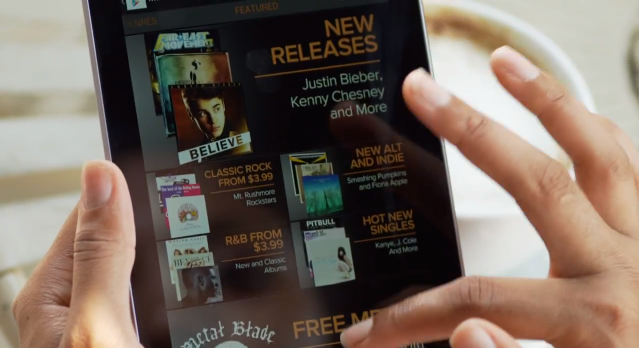
Google resumes 16GB Nexus 7 sales
When the larger model of the Nexus 7 vanished from the Play store a week ago, it was generally assumed that demand outstripped supply. After all, the tablet has been insanely popular since its launch, and pretty much sold out everywhere. The fact that the 8GB model was still available in the store just suggested that people were more interested in physical memory than cloud storage.
But then the conspiracy theories began to kick in. There had been a lot of complaints about the 16GB model prior to its disappearance, with most focusing on screen issues, which led my colleague Joe Wilcox to question whether the model had been withdrawn for reasons other than just overwhelming popularity. His article certainly struck a nerve and generated some interesting comments, including further complaints about the device. Could he be right? Was there more to the story than Google was telling us?
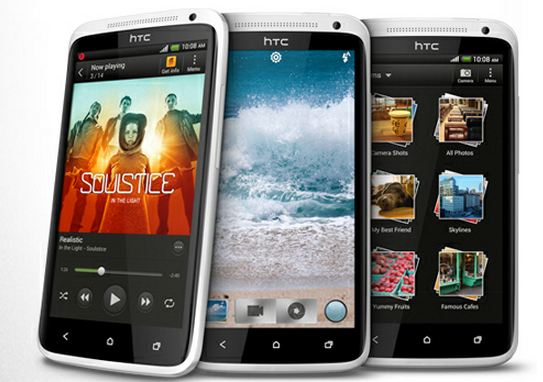
AT&T slashes HTC One X price in half
Have you considered the HTC One X but found the price to be too high? The phone now is a whole lot cheaper. AT&T slashed the price in half -- by $100 from $199.99 to $99.99 on a two-year contract.
The One X comes with Android 4.0.3 Ice Cream Sandwich out of the box, but the Taiwanese company is working on delivering the latest, Jelly Bean, and confirms to BetaNews that they will upgrade the One X (One XL internationally) as well as other devices such as the One S to Android 4.1. It's great news for HTC owners as well as future buyers. Jelly Bean is a very attractive offering with welcomed improvements and nice new features. The catch: HTC offers no upgrade timeline for when the phones will receive the newest Android version.
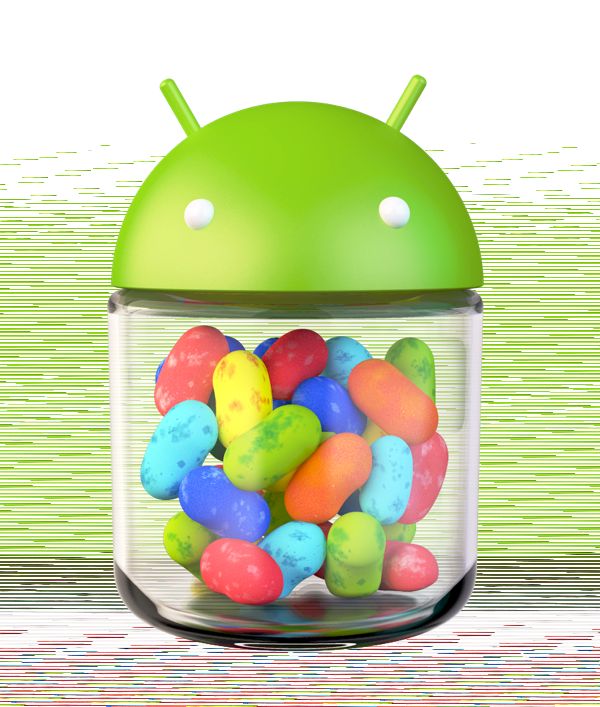
Modders rejoice: Google posts Jelly Bean factory images
Google has posted Jelly Bean 4.1.1 factory images for the Nexus lineup on their developers website. It's reason for modders needing to restore the factory default image to rejoice. Unlike other Android devices, the Nexus lineup benefits from Google's direct support and timely updates as well -- Galaxy Nexus received Jelly Bean 4.1 about two weeks ago.
Jelly Bean factory images are available for all Nexus devices, starting with the Nexus S up to the latest released, the Nexus 7. It just shows that Google is committed to updating its lineup of branded smartphones, even after almost two years since the release of the Samsung-made Google Nexus S.
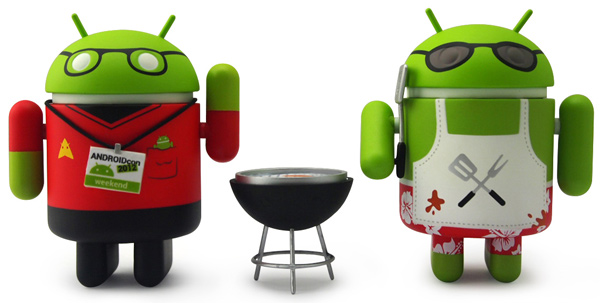
Get Android device notifications on your PC with DeskNotifier
How many times do you look at your phone when you are at your computer? If you are working in an office you may well have done the decent thing and turned down your volume – this means that there is no way of knowing when you receive an SMS or some other notification that you may need to see. This is where DeskNotifier and DeskNotifier for Android can help, enabling you to see notification in Windows.
You’ll need to install both the desktop and Android version of the app and you can choose between using it when your phone or tablet is connect to your computer via USB, or over Wi-Fi. Whenever a notification appears on your Android device, a similar alert will be generated in the form of a taskbar balloon popup. You can also choose to have a sound played, but if you have switched off sounds on your Android device, this may only be useful if you are useful headphones.
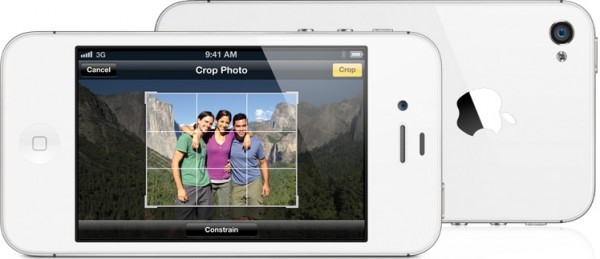
iPhone sales are slowing, deal with it
Apple shares closed down 4.32 percent today, keeping with a trend started during after-hours trading yesterday. The real question: Could matters have been much worse, if not for the big carrot that came with the little stick? Apple missed fiscal Q3 Wall Street analyst consensus for revenue and income, but announced a big dividend and promise of more to follow. Performance was by no means bad, just not as good as forecast and the dividend, $2.65 per share, is something for shareholders to smile about.
But behind the magic, I have to ask: Is Apple distracting shareholders and Wall Street analysts, making them look over there so they miss the trick going on over here? It's a question I can't answer but can only speculate about. Another quarter of results will reveal much. One thing is certain now: iPhone sales are slowing. There's no if about it, but why. Are people waiting for the new model or are Android rivals like Samsung pulling away more buyers?
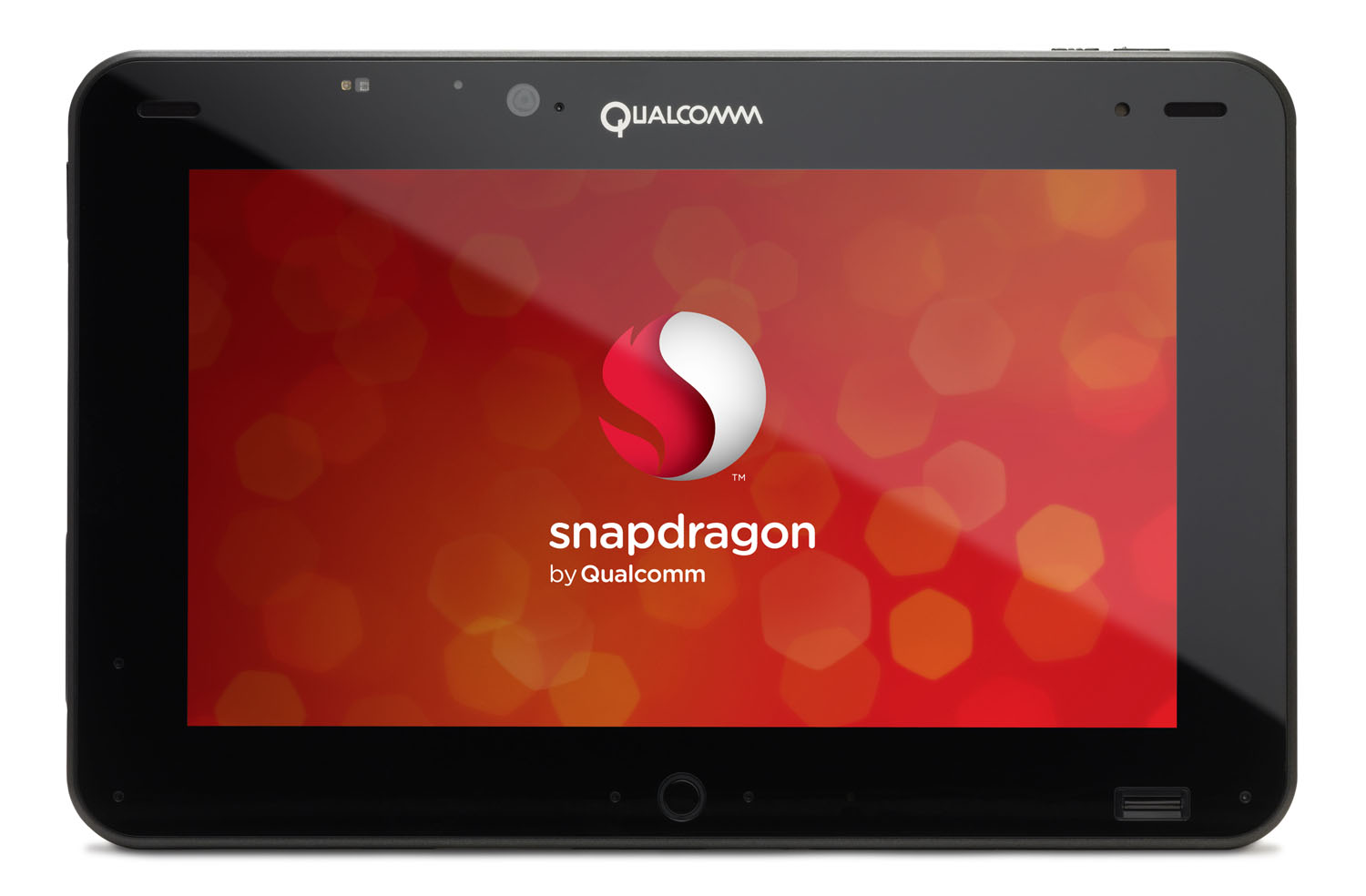
Qualcomm unleashes the fastest (and most expensive) Android tablet yet
NVidia, Samsung, you can keep your Tegra 3 and Exynos. There’s a new champion in the Android world of tablets.
There are people that only settle for the best products, so if you’re after the fastest tablet running Android you’re in luck: Qualcomm has the answer for you with the Snapdragon S4 Pro Mobile Development Platform (MDP) tablet. So how fast it is? Let’s just say that there is no Exynos or Tegra 3 that can keep up with this "evil" creation from Qualcomm.

IDC Appcelerator survey reveals what app developers love and hate the most
International Data Corporation (IDC), in partnership with mobile platform company Appcelerator, announced results of a global survey of Appcelerator developers on Tuesday, The survey created a detailed profile of developers' outlook on the market, with a particular focus on development for enterprise.
At a high level, the survey showed that developers believe Apple is leading the charge in the enterprise mobile deployment; see Android only as a consumer opportunity; are excited about remote cloud service integration; and are cautiously optimistic about Windows 8 and Windows RT tablets; but see Windows Phone as disappointing.

Use AirDroid to manage your Android, no cable required
Want to get some photos off your Android phone or tablet but don’t have your USB cable with you? Looking for a way to send SMS messages from your computer? Want to copy and paste text between your Android device and computer? These are just some of the things that AirDroid could help you with.
This free app enables you to use your web browser to connect to and control your Android device on a Mac or a PC running Windows or Linux. Connect your computer to your phone or tablet -- there’s no need for a desktop program to be installed -- and you can do this on both your personal computer and those in public locations. You can establish a connection in a matter of seconds by firing up the app on your mobile device and then visiting the URL you are provided with. After entering the password you’ve been given, you’ll be presented with an online desktop that you can use to browse and manage your Android device.

Is 99 cents too much to pay for an Android game?
Soon after colleague Randall C. Kennedy wrote that "Piracy is killing Android", developer Madfinger Games complained that incredibly high piracy rate on Android devices is why Dead Trigger is free on Google Play, while 99 cents on Apple’s App Store. Is iOS better than Android in this regard?
After an initial price of “as little as buck”, some game developers are going free, due to the piracy rate that plagues the Android world. Madfinger Games hasn’t provided any statistic as to how many of their game installs account for pirated copies, but according to Google Play numbers their installs are in-between 100,000 to 500,000, with an exponential increase at the end of the last 30 days. The game has been free since July 20, so in just four days its popularity skyrocketed. Does this mean a high piracy rate or just the plain “it’s free, I’ll take it” thinking?
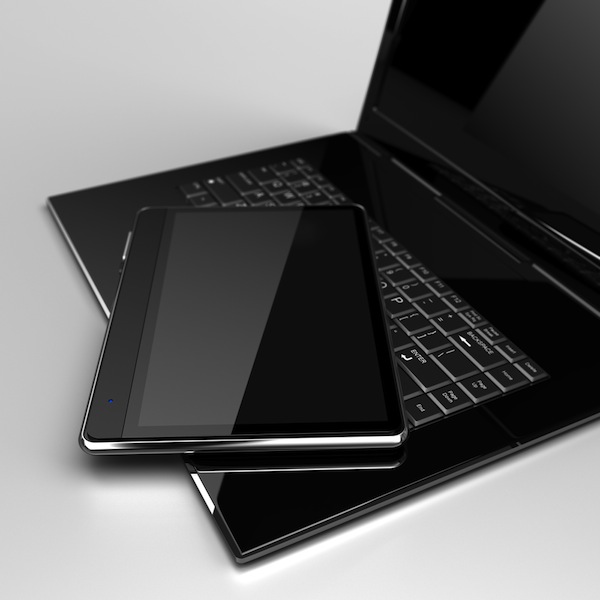
You can't do real work on a tablet
Whenever I think about tablets v. PCs, I remember a bold prediction of old: “Son, 10 years from now everyone will drive an electric car!” When was that, 20 years ago? We’ve all read something like that from someone believing to be clairvoyant.
I read similar articles almost every day where the writer plays the same old broken record: tablets are the death of PCs, or some other flamboyant thing that’s bound to get interest -- with the hope that the reader will agree with the author. It's like almost everyone is set on sending the PC down to the gates of Hell. But why should I agree with their assertions when I actually need a PC?
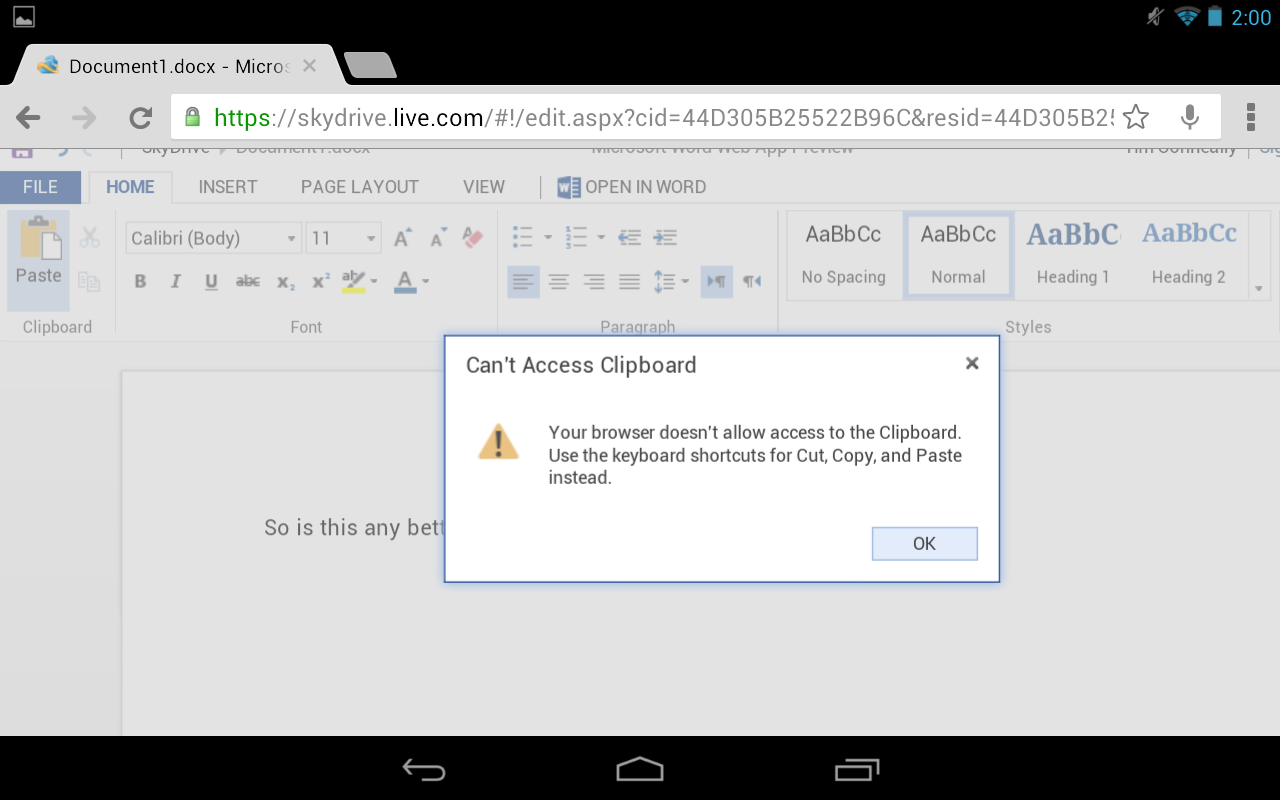
Microsoft's new Office Web Apps: More mobile, but not mobile enough
For just about three years, we've had Microsoft's browser-based suite of free Office tools alongside the desktop Office software. In that time, we've composed and edited loads of Word documents, created Powerpoint presentations, and manipulated Excel spreadsheets. But when these types of Web apps debuted, there were three great islands: the standalone desktop software, the Web-based service, and the mobile application. Each was meant to be used in a different context, and each was equipped with different capabilities to suit those contexts.
For Microsoft in 2010, the PC was still the reigning king, so the Office Web apps were meant to get Office documents off the hard drive and out where they could be easily shared and passed between PCs.
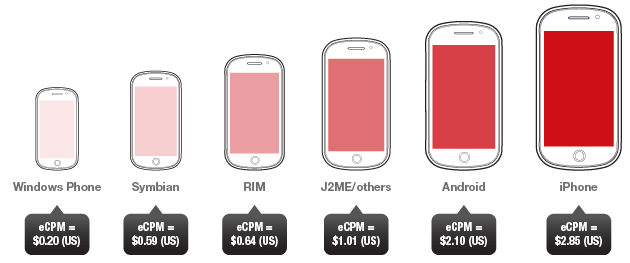
iOS is more profitable ad platform than Android, but for how long?
Ad network reports about mobile platforms are a dime a dozen. Many boast about iOS presence and the oodles of eyeballs. Opera has joined in, releasing their first State of Mobile Advertising report, which, for the second quarter of 2012, focuses on mobile advertising revenues. The browser maker puts all the big players -- Android, iOS, BlackBerry, Symbian and Windows Phone -- under the microscope.
Like other ad network reports, Opera's puts iOS at the top of the revenue food chain, with an average eCPM (effective cost per thousand impressions) of $2.85. iOS' main rival, Android, follows, with average eCPM of $2.10. On the tablets, iOS is even more profitable than on the smartphone market, with a $3.96 eCPM.
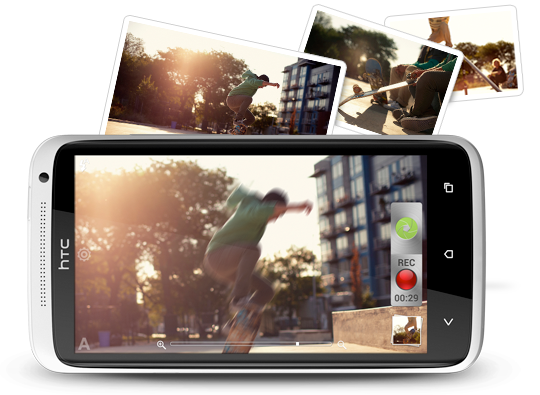
HTC One S, X and XL will get Jelly Bean, but when is anyone's guess
Have you ever wanted the latest and greatest but you couldn’t get it? That is the ongoing problem for Android phone users. Google announces the new version and they wait. And wait and wait. Android 4.1 Jelly Bean released last week, leaving many people like you asking: Will I get it? If so, when?
HTC has an answer to the first question, but not the second -- that is for One series owners.

Nexus 7 sells out
Google's tablet is off to a rousing debut. I doubt sales numbers will reach iPad standards, but Nexus 7 is nevertheless hotly pursued and reports from early adopters evoke pure delight. If you want one and haven't ordered, be prepared to wait. In the United States, delay is now nominal for the 8GB model -- 3 to 5 business days before shipping, according to Google Play. Prepare to wait three to four weeks for the 16GB tablet, however. That's from Google, which right now has best availablity following the first weekend rush.
I preordered one for my wife on June 29, hours after returning from Google I/O. Soon as she saw my Nexus 7, Kindle Fire was history. Shipment notice dispatched while I was at Comic-Con on July 14, and the tablet arrived early afternoon yesterday. I watched a fairly consistent stream of Google+ posts all day, as those people who preordered received their tablets.
